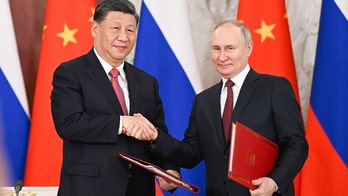The internet has been captivated by a mind-bending video depicting a futuristic "head transplant machine" called BrainBridge. While the footage has sparked widespread intrigue, it has also ignited a fierce debate about the ethics and feasibility of head transplantation.

The concept of head transplantation has long been a subject of fascination and speculation in the realm of science fiction. However, recent advancements in artificial intelligence and robotics have brought the possibility of such a procedure closer to reality. The BrainBridge video, which has garnered millions of views online, has thrust this controversial topic into the public discourse.

The mastermind behind BrainBridge is Hashem Al-Ghaili, a Yemeni science communicator and film director known for his imaginative and thought-provoking creations. Al-Ghaili's previous viral hit, "EctoLife," depicted artificial wombs and sparked conversations about the ethical implications of human reproduction.
Despite its realistic appearance, BrainBridge is not a real company. The video is a work of science fiction, blurring the lines between reality and imagination. Al-Ghaili's intention is to provoke discussion and challenge societal norms regarding the limits of medical interventions.

The idea of head transplantation holds allure for proponents of radical life extension. They argue that while anti-aging medicine struggles to make significant breakthroughs, a head transplant could bypass the aging process by transferring one's consciousness onto a younger, healthier body. However, this concept raises a multitude of ethical and practical concerns.
Where would donor bodies be obtained? Is it ethical to use a body to benefit only one person when its organs could save multiple lives? These are just a few of the thorny questions that have emerged in the wake of the BrainBridge video.

The BrainBridge video may be a work of fiction, but it has sparked a real debate about the ethics and feasibility of head transplantation. Proponents argue that it could extend human life and mitigate the effects of debilitating diseases. However, critics question its moral implications and raise concerns about the potential for exploitation.
While the public reaction to the BrainBridge video has been largely negative, with many expressing disgust and moral repugnance, Al-Ghaili remains undeterred. He claims to have received inquiries from potential investors and individuals seeking relief from personal health challenges.
As the debate rages on, one thing is clear: The BrainBridge video has challenged our perceptions of what is possible and forced us to confront the ethical implications of pushing the boundaries of science and technology in the pursuit of longevity.
Some argue that head transplantation is a potential path to radical life extension, enabling individuals to bypass the inevitable decay of the body. However, others express concerns about the ethical implications, questioning whether it is morally justifiable to sacrifice one life for the potential benefit of another.
The pursuit of radical life extension raises profound questions about the nature of human existence and the value of life itself. While the BrainBridge video may be a work of fiction, it has served as a catalyst for a deeper conversation about the limits of medical interventions and the ethical considerations that must accompany them.
The debate about head transplantation is likely to continue as scientific and technological advancements bring new possibilities to the realm of medicine and ethics. It is essential that this conversation be conducted with both rigor and empathy, ensuring that the voices of all stakeholders are considered and that the choices we make are guided by thoughtful deliberation.










